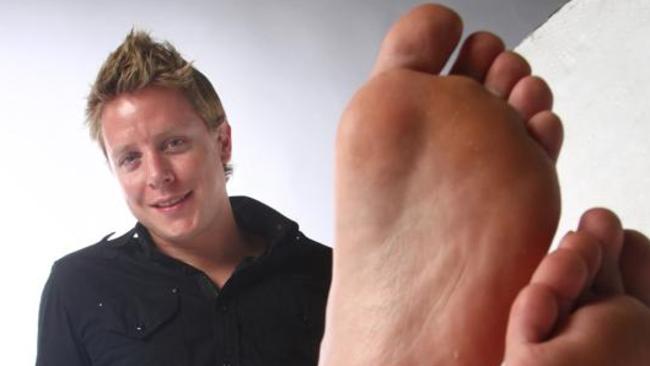Take the right steps to tread your own financial path
READERS ask the Barefoot Investor his advice on mortgages, education funds and how to invest the cash from the sale of a home.

Barefoot Investor
Don't miss out on the headlines from Barefoot Investor. Followed categories will be added to My News.
QUESTION
I’m 25. My husband is 27. We own our house outright and our first baby is due any day. We also have $190,000 in the bank. (We’ve had help from his parents, we saved really hard and lived frugally.)
We would like to keep $50,000 easily accessible for a rainy day, but that still leaves us with $140,000 that we don’t really know what to do with beyond invest. Any advice?
Rachel and Billy
ANSWER
It’s an excellent idea to have $50,000 parked in a Mojo (high-interest online savings) account. At your age, if you begin investing sensibly, the power of compound interest will amass you many millions of dollars over your lifetime.
There are three things I’d recommend. First, consult an accountant to ensure you set up the right tax structure for your assets. Second, sit down with a full-service stockbroker who can work with you to build a portfolio of well-run businesses. Third, sit down with a counsellor — whether that be a trusted family friend or a professional — and map out what you want from life.
I paid off my mortgage early too and I can tell you there’s always a temptation to buy a bigger, more expensive place, where you’ll end up competing against fancier neighbours. Yet if you play it smart you’ll be able to tread your own path — and that’s the only goal that matters.
UNI OR TRADE?
QUESTION
Our son has just started a chef apprenticeship.
I’m trying to work out whether he’d be better off financially going to uni or getting a trade, taking into account HECS loans and no super contributions while studying. I know there are a lot of variables, but I’d like your take on this please.
Trish
ANSWER
Obviously, it all depends on what he might choose to study at uni.
But I’d encourage him to follow what he’s really passionate about, rather than pushing him into doing something for the money. There are plenty of disgruntled, alcoholic millionaire lawyers who’ll back me up on this.
The truth is anyone with enough time and common sense can become wealthy on an average salary. So the best thing you could do for your son is to encourage him to learn how to grow his money — and the best time to learn is before he has any!
HECS is no hex
QUESTION
My daughter is concerned about her $25,000 HECS debt, particularly after the recent Budget. She only earns $37,000 a year and she’s thinking ahead. She’s worried it will count against her when she applies for a housing loan. Should she pay it off?
Linda
ANSWER
I’ve found that each lender scores HECS-HELP debt slightly differently. Generally it’s only a make-or-break issue for a lender if the person is borrowing too much. If your daughter is sensible and saves a 20 per cent deposit, it won’t be a factor.
She doesn’t have to start paying back her HECS until she begins earning over $53,345. The Government is taking away the bonuses for early repayment, and, even though the debt will now incur a real interest rate (the 10-year bond rate), it’s still the cheapest loan she’ll ever get. Encourage her to save for a house deposit instead.
Take a break
QUESTION
After three long years my husband and I are now divorced. We have no children. I have been living in our home but will move out in 90 days now it’s been sold. I am set to get a cheque for $375,000, which scares me. I’m a little overwhelmed in what I should be doing? Invest, buy a home?
Chantelle
ANSWER
Give yourself a break. It’s understandable that you’re not in the right headspace to deal with your finances. My advice would be to find a decent rental for 12 months, set up a three-month emergency fund, go to Bali with your girlfriends and stick what’s left over into a term deposit for 12 months. Next year is your year to shine.
Originally published as Take the right steps to tread your own financial path


